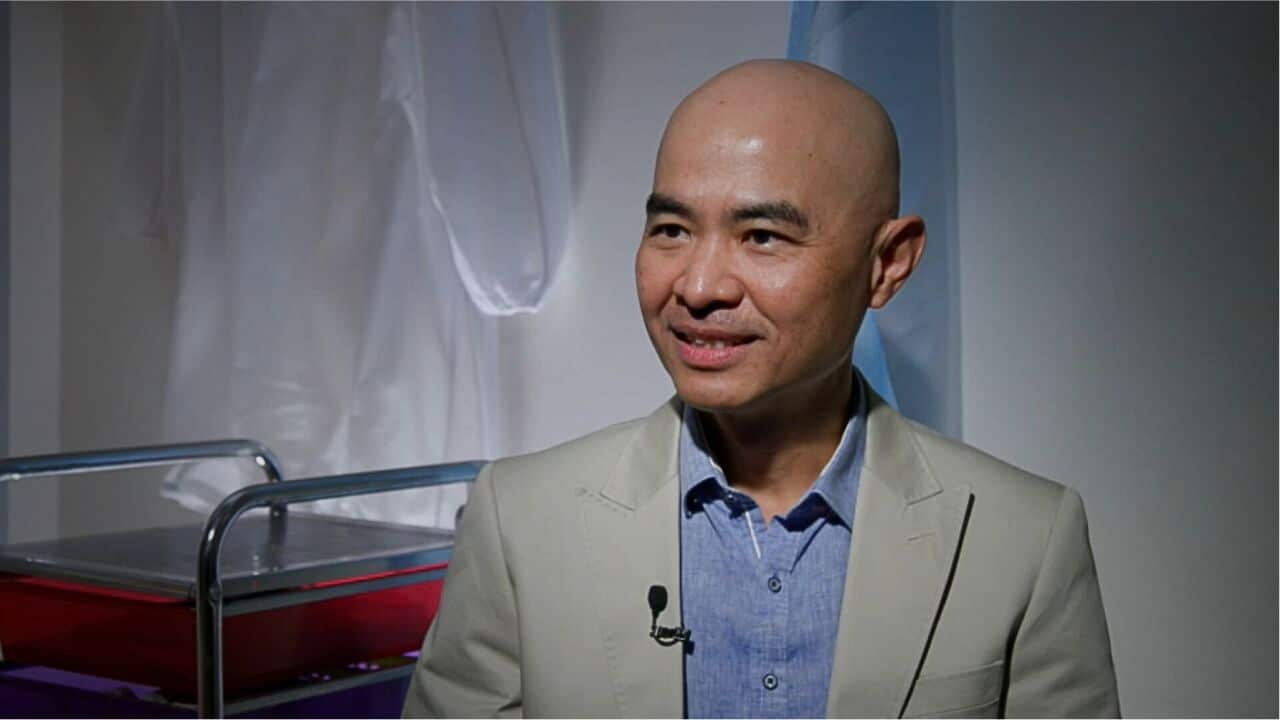TRANSCRIPT
Doctor Huy Tran says he remembers every detail about his life in Vietnam.
"Life in Vietnam before 1975 was like heaven on earth in the eye of a little child. I still remember my second birthday party when my loving parents and my siblings organized this beautiful party."
But after the fall of Saigon, he says nightly bedtime stories were replaced by strict instructions.
"My parents would say, "lie flat on the ground so that if there are gunshots you won't get shot. If you hear planes, hide under your bed. If the roof collapsed, then the bed might protect you."
The new Communist regime stripped the family of their home, their car and their livelihood, forcing them to take their chances on a 24-meter fishing boat with 470 other people.
"My parents decided that with the constant prosecution, we would rather sink to the bottom of the ocean and die than live in that society."
After a treacherous journey spanning almost a year, the Tran family arrived in Australia in September 1979.
"We felt like these two giant arms just hugging our whole family. Just like two parents hugging our whole family and saying to us "you're okay now. We'll look after you". It was so beautiful. That was my first day in Australia."
Doctor Rachel Stephens from the Australian Catholic University says the arrival of these Vietnamese refugees sparked a significant change in Australia's immigration policy.
"From 1977 through to 1991, Australia resettled around 150 thousand Vietnamese refugees and migrants. As we know the White Australia policy ended 50 years ago this year in 1973 so we could see that the arrival of Vietnamese refugees was really the first test to the disestablishment of the White Australia policy."
Fewer than 700 Australians reported Vietnam as their birth place in the 1971 census - but that number grew to more than 80 thousand 15 years later.
In the latest census, there were more than 268 thousand people who reported Vietnam as their country of birth.
The suburb of Cabramatta for example, in Sydney’s west, boasts one of the highest proportions of people with Vietnamese ancestry in Australia.
The area is bursting with Vietnamese restaurants, bakeries and mixed businesses – earning it the nickname ‘little Saigon’.
Ms Stephens says this has led to positive impacts across the country.
"The arrival of Vietnamese refugees was so important in revitalizing those neighbourhoods and providing a new source of income, a new regeneration of community groups in suburbs that were struggling in industrialisation that really ravaged many Australian cities."
More than 40 years on, Dr Tran now works as a G-P in Sydney.
"Not that its more important than any other job. Every job is equally important, but I thought it may be easier for me to help as many people as possible being a doctor. And that's when I changed my mind in year 12 to do medicine. All along I never had the intention to study medicine."
His parents died 10 years ago, but he says he'll never forget their sacrifices.
"One day my dad sold their wedding rings and bought some basic necessities like thongs so that we don't walk on the hot sand and the rocks. And with some spare money he bought some three apples for my two sisters and me. Amid such hardship, that apple was the most beautiful thing I have ever tasted. And as a young child, I innocently looked up and at my dad and I said "dad that's so beautiful, when you have more money can you buy me another one?". Although my dad knew that the truth is he'll never have more money to buy me another apple, yet he smiled. He stroked my head and he said dear son, one day when I have more money i will buy you more apples. And staying true to his words when we came to Australia, my parents bought so many apples that for 30 years I could honestly not eat another apple."













